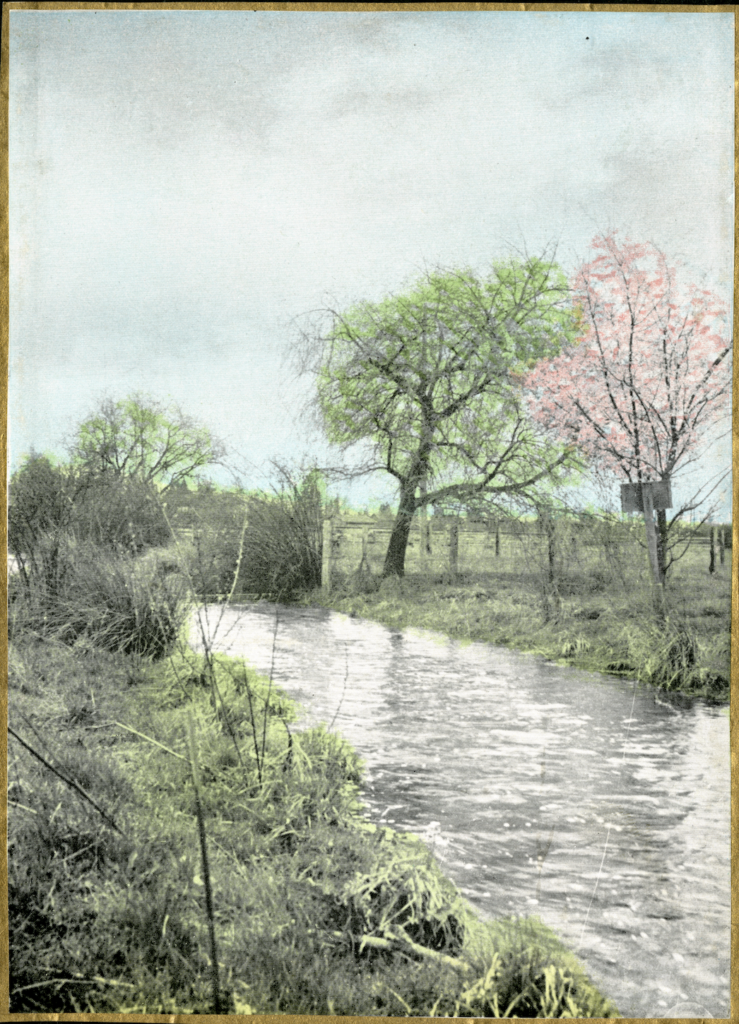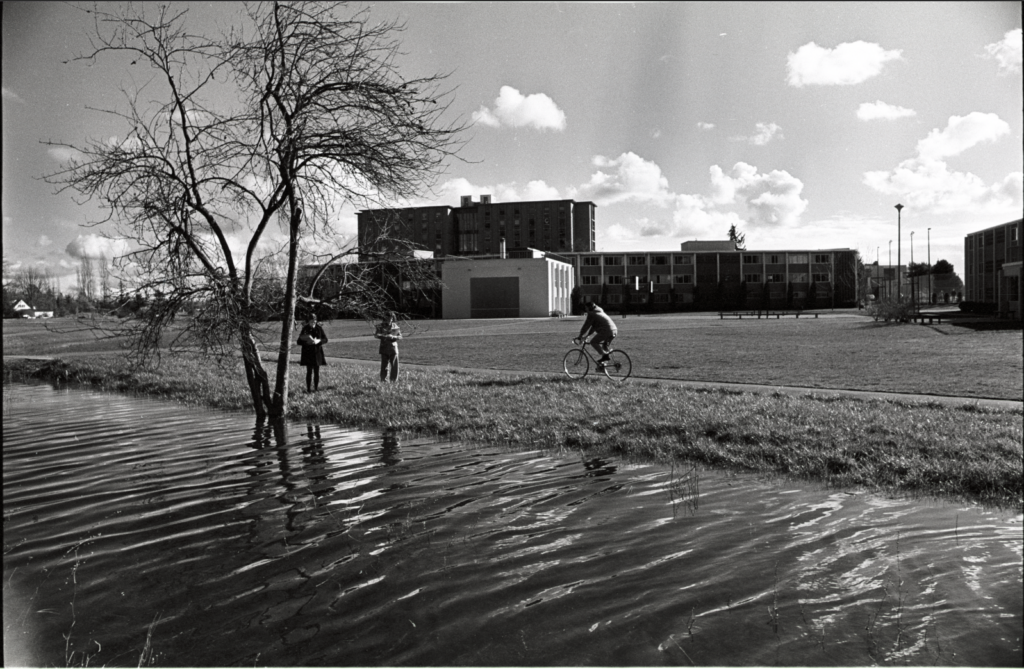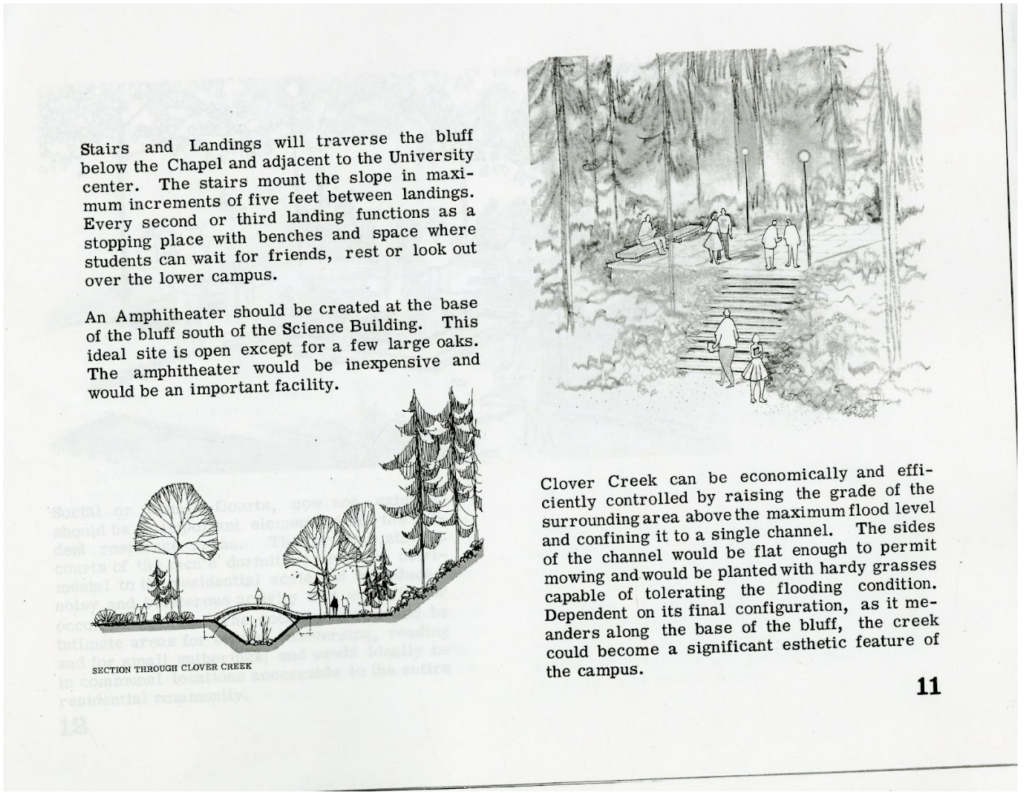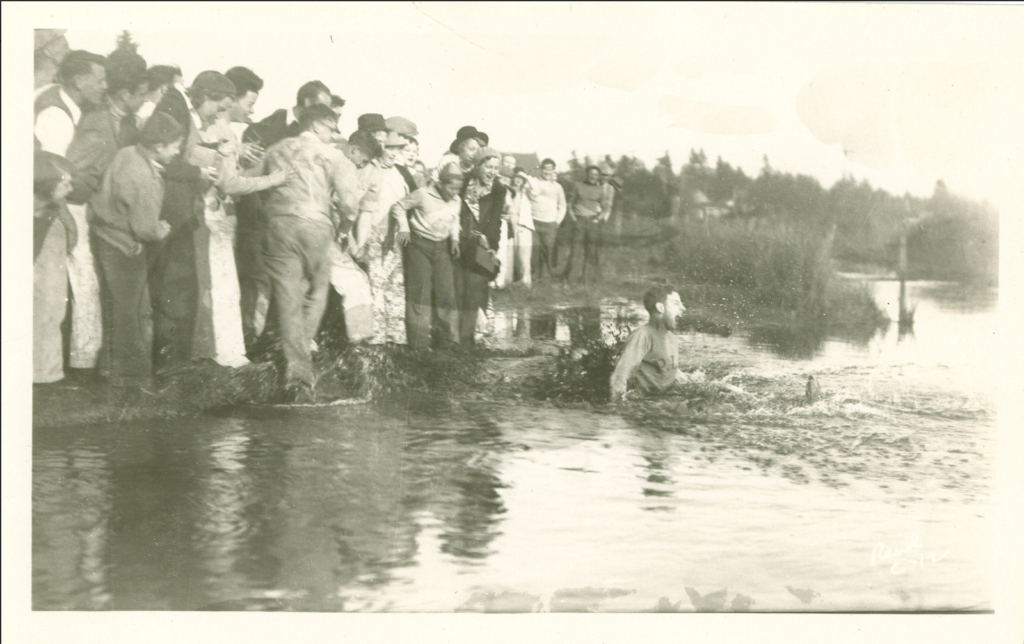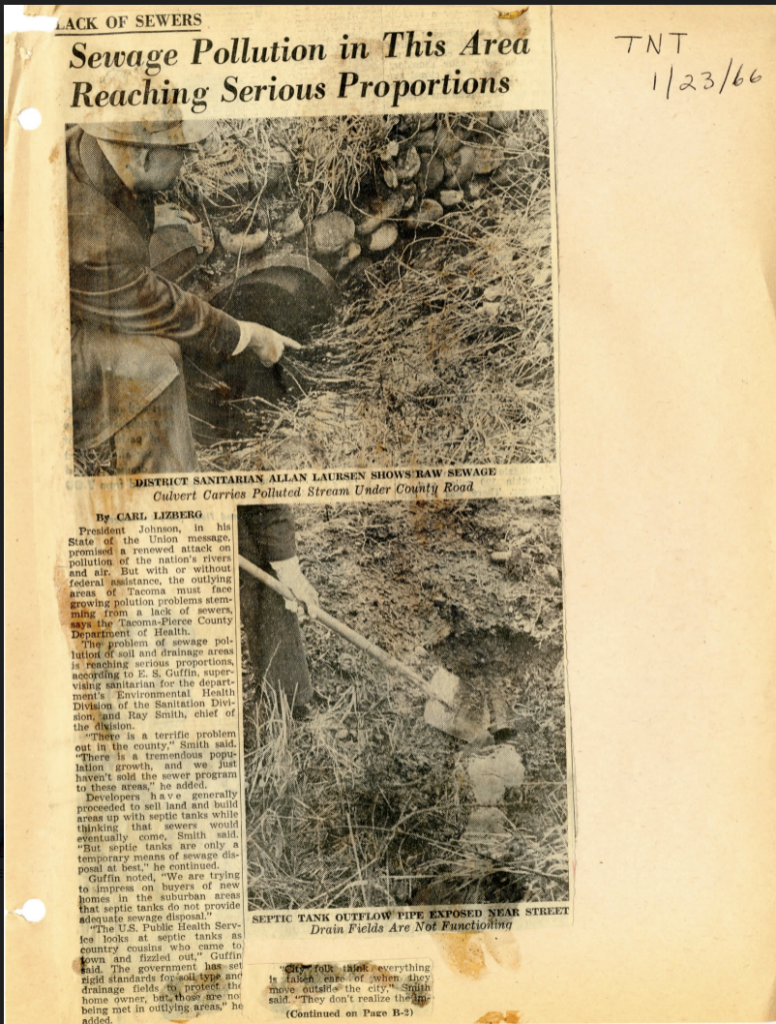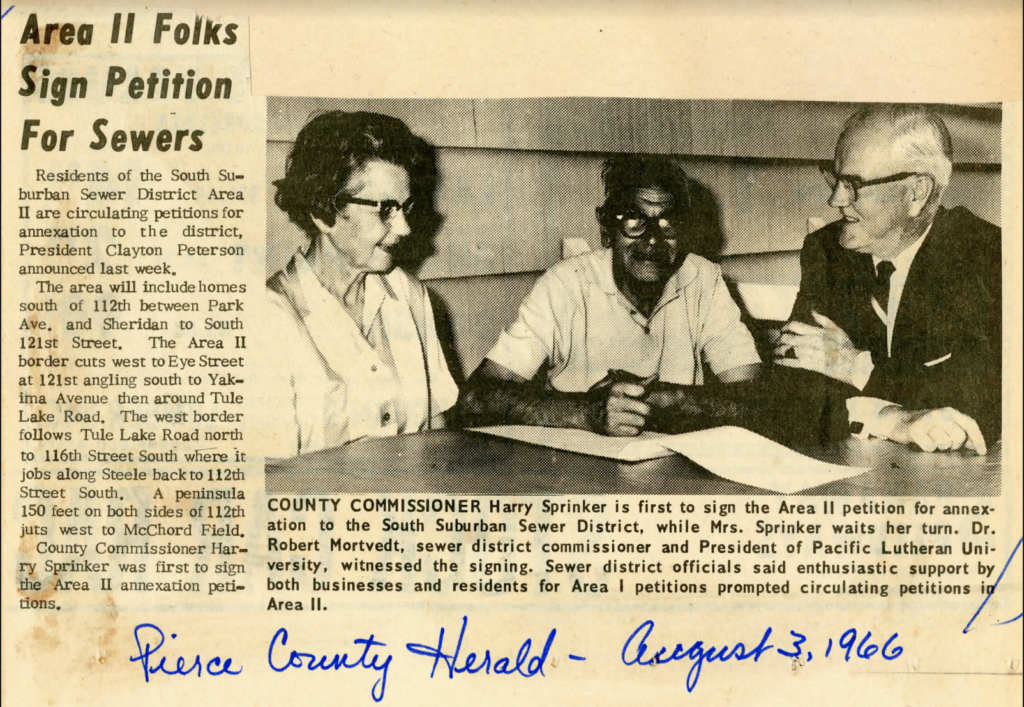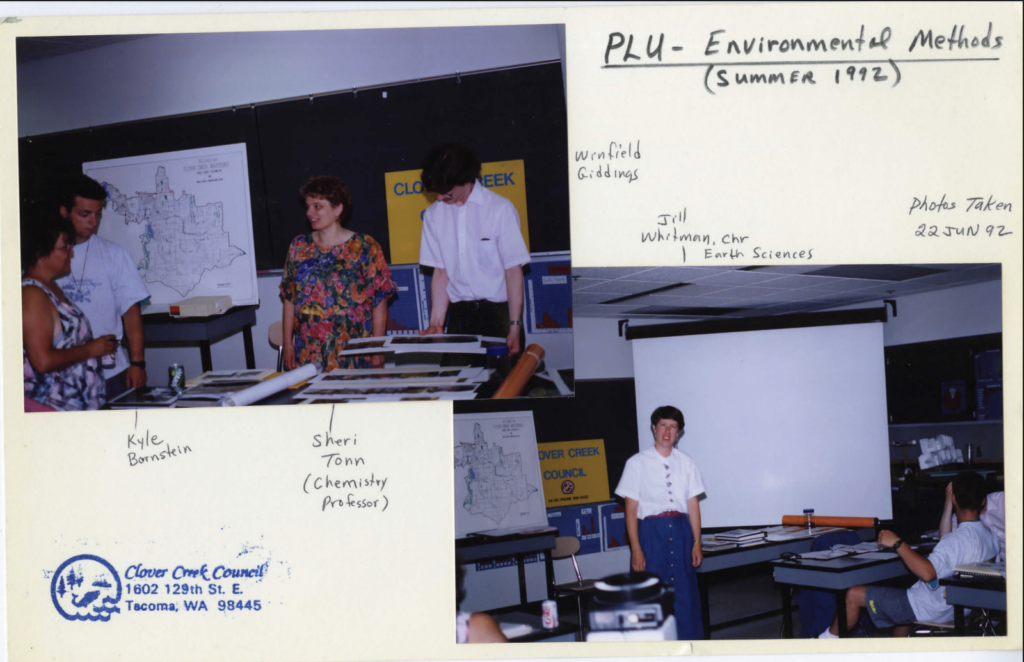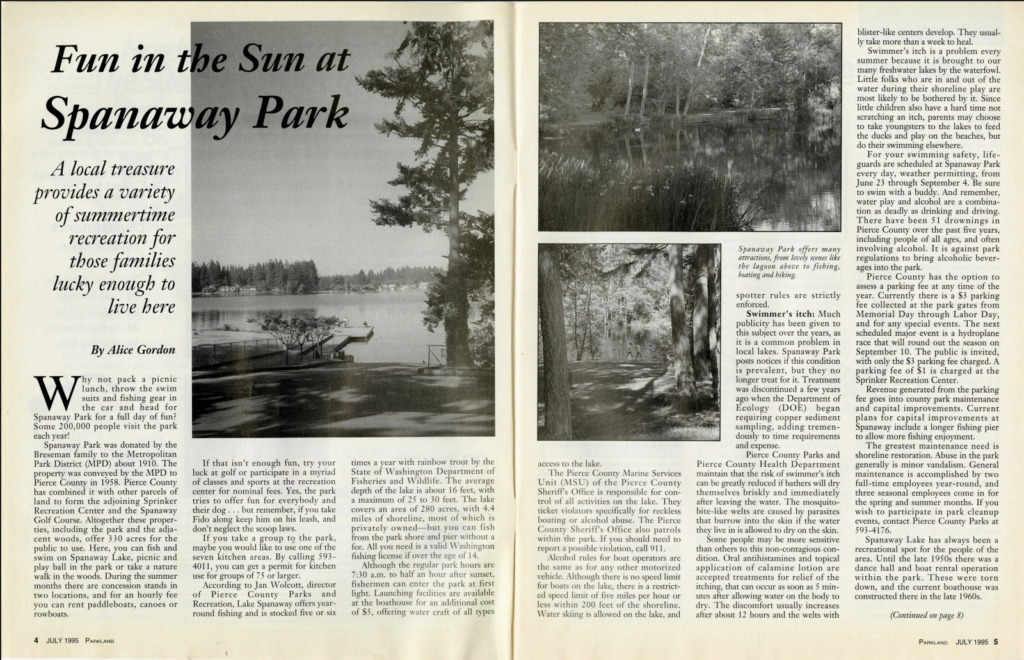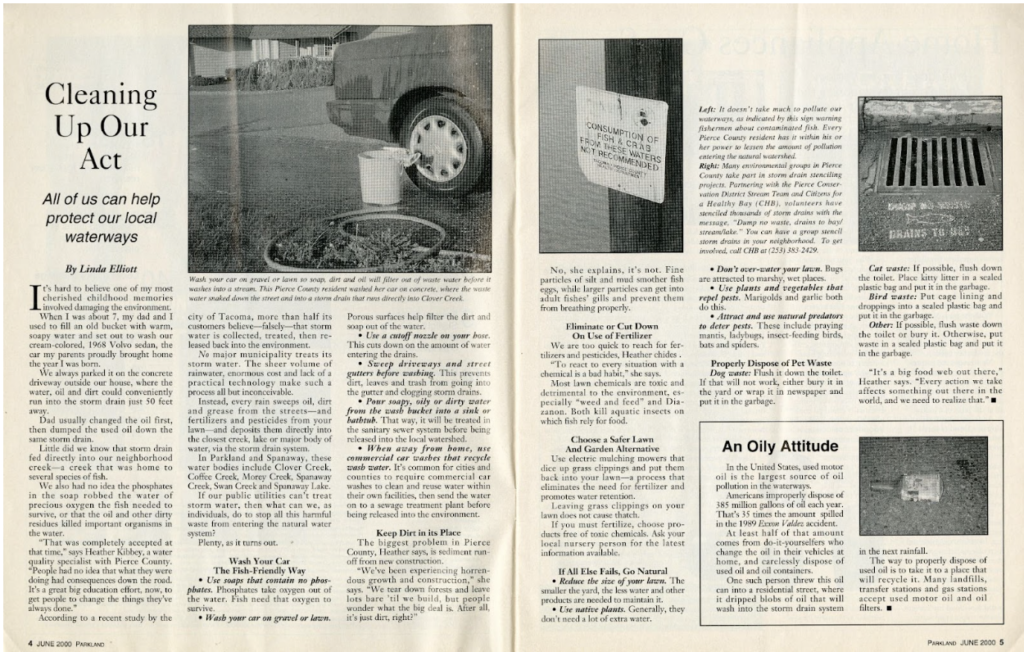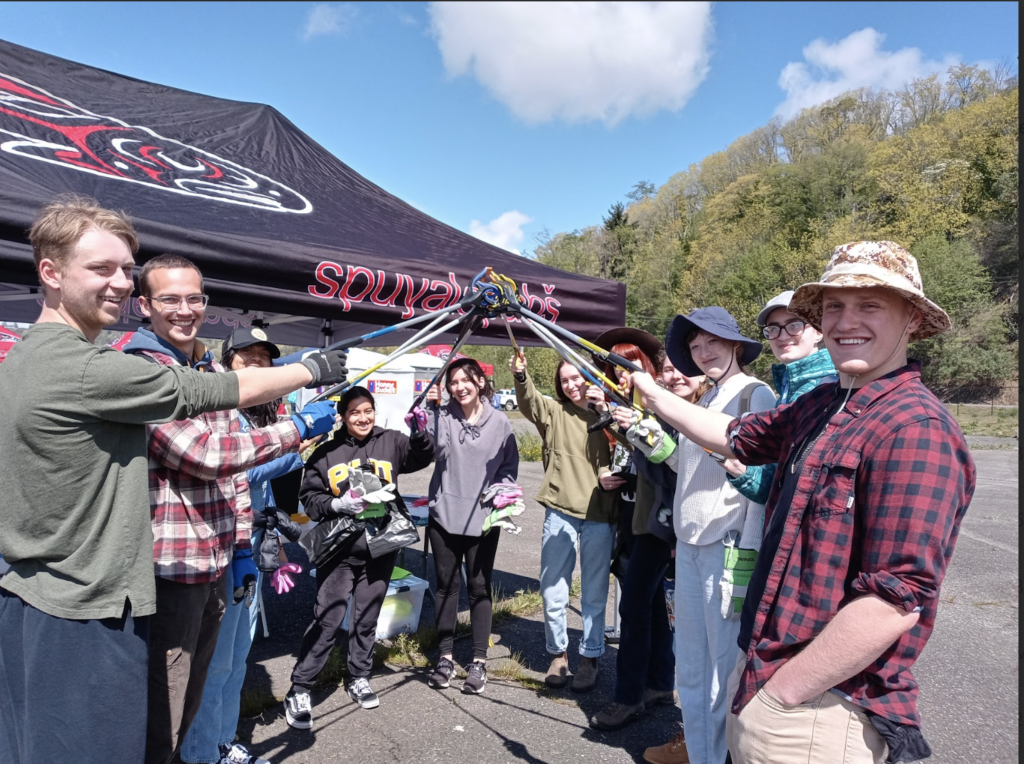Clover Creek became a prominent system in Parkland’s early neighborhoods, captivating locals, and providing adequate water supplies. “Even when we came here in 1925, it was an adequate swimming place for neighborhood children.” (Emma Ramstad). Many other Parkland settlers acknowledge the creek system as their main water supply.
Parkland was considered to be bountiful in natural resources, becoming the perfect host for Pacific Lutheran University. Clover Creek ultimately is the reason the school settled here, due to its ability to supply water to the community.
As the city continued to urbanize, the creek started to become channelized. In PLU’s Report on the Landscape Master Plan, we see an image of the creek being maintained for aesthetic and economical purposes. In other cases, such as with McChord Air Force base, the creek was moved below the…
Read More
While we no longer see students fishing in the creek after classes, the Parkland Prairie provides students and community members maintained, off campus trail access.
Failing sewer systems caused by a high volume or urbanization and population growth led to great levels of pollution in Chambers – Clover Creek. This sparked the beginning of the South Suburban Sewer District.
The goal was to create sanitary systems for incorporated areas in Parkland, Spanaway, and Lakewood. This included the Clover Park School District and PLU.
Pacific Lutheran University’s first offered a semester-long study of the Clover Creek Watershed through Environment 350: Environmental Research Methods in 1992.
Clover Creek continued to offer recreational services to those living near it. Spanaway lake, in Parkland, Washington, now infamous for its’ high algae concentration, offered swimming to Parkland residents over the Summer.
On the other hand, the Chambers-Clover Creek watershed still faced high volumes of pollution and degradation. Featured in the Parkland Ruralite were ways to help maintain healthy streams.
PLU still offers Environment 350 to Environmental Studies students. Throughout the course, students and faculty spend the semester researching different sites in the watershed through multiple disciplines: Ecology, Chemistry, Geology, English, Indigenous Studies, and more.



